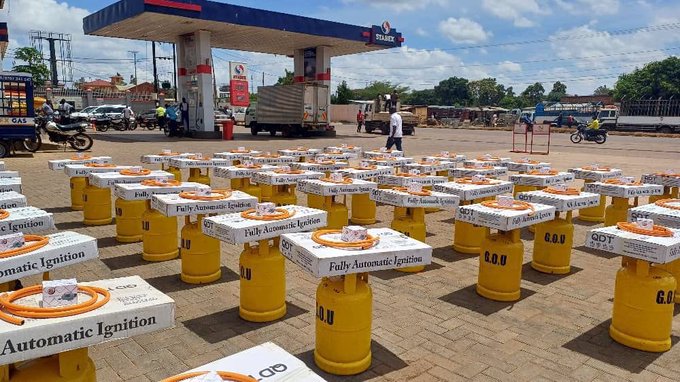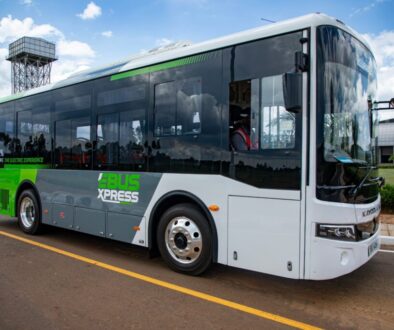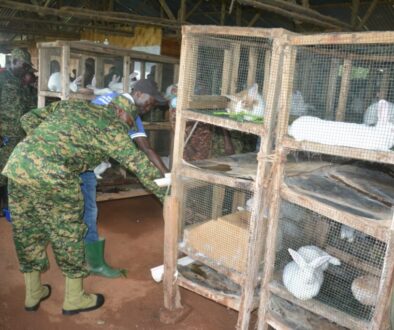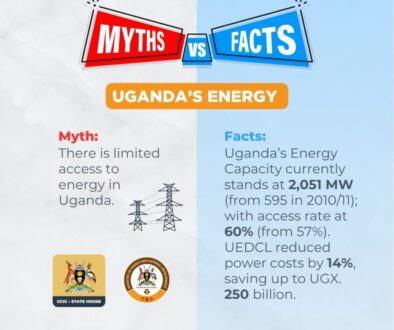Gas cylinder expiry dates shock Ugandan users

CAPTION: Gas cylinders and cookers given residents of Gulu City by Governemt recently. (File photo).
KAMPALA – Despite its convenience, cleanliness, and speed, the use of Liquefied Petroleum Gas (LPG) for household cooking in Uganda continues to be hampered by deep-seated fears over its safety.
“For years, I couldn’t imagine using gas at home. I kept hearing about gas cylinders exploding, and that scared me,” he recalls. “And I know many people who still feel the same.”
Muti-wabanja eventually made the switch from charcoal and firewood and soon discovered that while explosions were unlikely, the safety risks were real—and in some ways, more subtle. He says he was warned of gas leaks, and so he has been guarding against this.
Apart from concerns about leakages, What Mutiwabanja hadn’t realized, something many users are still unaware of, is that gas cylinders, like many other packaged goods, come with expiry dates.
These dates mark when the cylinder should be inspected for safety, not when the gas itself goes bad. Mutiwabanja admits that while checking expiry dates is routine when buying most items, it had never occurred to him to do the same when purchasing gas.
However, he recalled an incident where his gas cylinder ‘stopped working properly,’ even though the LPG inside appeared to be full. After lodging a complaint with the supplier, the cylinder was replaced without any explanation.
“I once had a cylinder that stopped working properly, even though the gas inside appeared to be full,” he said. “I complained to the supplier and they replaced it without explanation. They didn’t say what the problem was, but it left me wondering whether it had expired or it was something else. I might never know.”
Aisha Lubega, a mother who has used gas for over a decade, was similarly surprised.
“Is that even true? How come no one has ever told us? I’ve used gas for years, but not once has anyone mentioned this to me,” she said in disbelief. “They tell us to watch out for leaks, but not about expiry dates or inspections.”
Indeed, concerns over gas leaks remain top of mind for most users. But according to the Uganda National Bureau of Standards (UNBS), many incidents involving LPG are the result of poor handling either by the user or by actors along the value chain.
The cylinder body is made of strong and heavy material to be able to withstand pressure as much as possible, but experts advise that households should ensure gas cylinders are stored away from direct sunlight and heat sources.
It is also critical that users routinely check for visible damage like rust, dents, or corrosion and secure the cylinder in a stable location.
Just like a soda bottle, shaking a gas cylinder just before use can be dangerous. So even after moving or transporting it from the supply point to the home, it is advised to leave it for some time to enable the contents to settle before turning on the valve to cook.
After transporting a cylinder, it should be left undisturbed for some time before opening the valve, to allow the pressurized contents to settle. For household users, the main safety task they have is to ensure that the gas cylinder valve is safely or properly turned off after cooking to prevent any leaks.
It is also advised that the gas cylinder is fastened in one place to prevent it from tipping over or constantly shaking the contents inside.
Yet for all the care users might take, the dealers themselves are sometimes the weakest link in the safety chain.
A 2020 UNBS market survey across Kampala, Mukono, and Wakiso inspected over 500 cylinders and found widespread noncompliance. At least 35 percent of LPG importers, owners, filling plants, outlets, and dealers were violating Uganda’s Weights and Measures rules, particularly around labeling and accurate filling.
Franklin Mucunguzi, a legal metrologist with UNBS, said many dealers were either mislabeling their products or failing to label them at all; an outright violation of regulatory requirements.
“Several companies mark inconsistently,” the survey noted. “Some labels are on top of the cylinders, others on the handles or sides, contrary to Rule 8, sub-rule 5(a) of the Sale and Labeling of Goods Rules, 2007.”
Under Uganda Standards, all LPG cylinders must be clearly labeled with the supplier’s name, the type of gas, the batch number, net weight, and visible safety warnings.
Proper labeling is crucial for consumer awareness and traceability, especially in emergencies. Another major concern flagged by the survey was the practice of “cross-filling,” when a cylinder from one company is refilled with gas from another.
UNBS describes this as not only illegal but dangerous, as it obscures accountability and could distort product quality.
“Several companies mark inconsistently, with some labeling on top of the gas cylinders, others on the handles and on the sides of the cylinder which contradicts Rule 8, sub-rule 5(a) of the Weights and Measures Sale and Labelling of Goods Rule no. 36 of 2007,” the survey revealed.
UNBS also discourages “cross filling”, a common practice where gas cylinders of one company are refilled with products of a different company, which amounts to piracy and is therefore illegal as it distorts the market and violates the rights of the consumer on preference and choice.
Aloysius Kasoma, a local LPG dealer, acknowledged that such practices are common, particularly among small-scale operators.
“In some areas, dealers refill any cylinder, regardless of brand or condition,” he said. “You can use a cylinder for years without any issues, but that doesn’t mean it’s safe.”
However, he adds that while there is user preference for certain brands, the content quality remains the same, and that it is only the cylinders that vary from supplier to supplier.
Even Kasoma himself was surprised to learn about cylinder expiry dates.
“Sometimes suppliers recall cylinders that look too old or worn out, but I always assumed repainting was part of servicing,” he said. “It’s not always clear what’s done.”
The revelations come at a time when the Ugandan government and fuel companies are actively promoting LPG to combat environmental degradation from firewood and charcoal use. However, uptake remains low, at just 40,000 metric tons per year, barely a tenth of Kenya’s consumption, with less than 2 percent of Ugandans using gas.
As usage grows, so too does the need for public education, not just on the benefits of gas, but on the hidden risks of poor handling and regulatory gaps.
For now, many users like Mutiwabanja and Lubega are left with more questions than answers. “Maybe it’s safe, maybe not,” said Mutiwabanja. “But we need to be told the whole story. not just what sells the product.”


